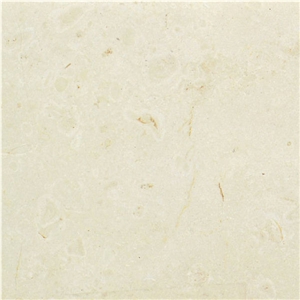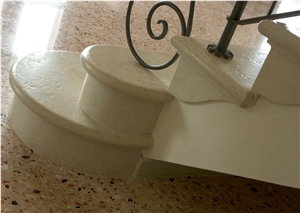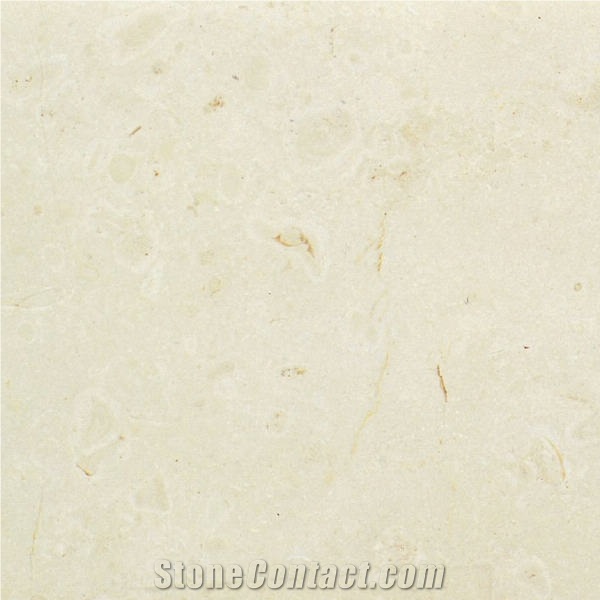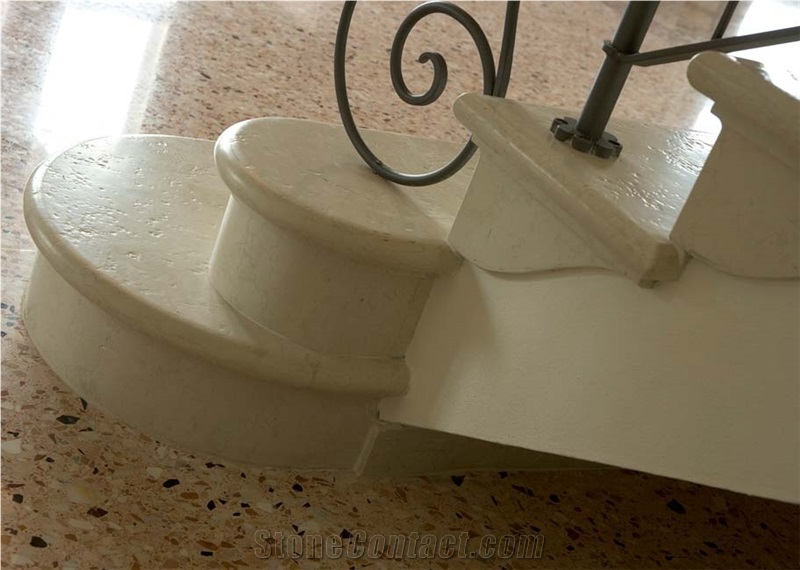Biancone Apricena
 Italy
(Apricena, Provincia di Foggia, Puglia)
Italy
(Apricena, Provincia di Foggia, Puglia)
CARATTERISTICHE TECNICHE MEDIE
Peso specifico 2,72 gr/m3
Peso di volume 2,68 gr/m3
Coefficente di imbibizione riferito al peso 0,11 %
Coefficente di dilatazione lineare termica 3,53 mm/m °C x 10 –3
Resistenza a compressione allo stato naturale 1.775 Kg/cm2
Resistenza a compressione saturo d’acqua 1.670 Kg/cm2
Resistenza a compressione dopo 20 cicli
di gelo e disgelo 1.650 Kg/cm2
Modulo elastico (compressione) 380.000 Kg/cm2
Resistenza all’usura 2,79 mm/km
Resistenza all’urto 17,5 Kg/km
Grado di compattezza 0.985
Grado di porosità 0.015
Composizione chimica ~98% CaCO3
**
Biancone Apricena is compactness and the color not white but darker dots mixed with some cream. It is available in slabs with honed, brushed, polished finishes and recommended for interior and exterior projects in freezing climates including flooring, landscaping, walls and countertops.
Color:
It is a material with shades ranging from beige, ivory and pink colors (depending on the variety), with frequent thin and sinuous veins, which characterize the surface.
Surface finishing:
Polished, Honed, Tumbled, Sandblasted and Brushed(Antique).
Usages:
Exterior - Interior Flooring: Yes
Wall / Backsplash: Yes
Countertops: Yes
Exterior Usage: Yes
Available Size (cm):
10x10, 20x20, 25x25, 30x30, 30.5x30.5, 61x30.5, 40x40, 60x60, 60x30 ,80x100
thickness 1.0/1.2/1.5/2.0/2.5/3.0cm
Slabs(cm)
Small slab:
180~240 up x 60 / 70 x 2 / 3cm /5cm
Big slab:
240~300 x 120~200 x 2 / 3 / 5 cm
Cut to size
French Pattern & Ashlar Pattern Set Sizes:
8”x8” ,12"x12",8”x16”,16”x16”,16”x24”
Cut to size, 120x60x2/3cm for wall cladding
Standard counter top:
96"x25.5"x3cm, 108"x25.5"x3cm, 96"x26"x3cm, 108"x26"x3cm,
96"x25.5"x2cm, 108"x25.5"x2cm, 96"x26"x2cm, 108"x26"x2cm,
Vanity Tops:
25'' x 19''/22'', 31'' x 19''/22'', 37'' x 19''/22'', 49''x19''/22'', 61'' x 19''/22''(Single or Double sinks)
Edge profile:
Bevel, Full Bull-nose, Half Bull-nose, OG, Laminated Bevel, Laminated Full Bull-nose, Laminated OG, etc...

Can Italy's Biancone Apricena Marble be used exterior applications in very rainy climates?

Can Italy's Biancone Apricena Marble be used in landscaping?

What is the coefficient of friction of Acid Washed Finish Italy's Biancone Apricena Marble tiles?

Which is better for kitchen white marble or quartz?

Can Italy's Biancone Apricena Marble be used in a office?

Can Italy's Biancone Apricena Marble be used outdoors?

Are there color variations of Italy's Biancone Apricena Marble?

Is Italy's Biancone Apricena Marble an expensive stone?

What is the average water absorption of Italy's Biancone Apricena Marble?

How thick is Italy's Biancone Apricena Marble slabs?

What grade is Italy's Biancone Apricena Marble?

Which country has best quality white marble?
-

-

-

 Italy
Italy
Contact Supplier
-

-

 Italy
Italy
 Verified Supplier is for prove company authenticity,including business license,trade license and effective office space,to enhance buyers' trust to suppliers and their products, reducing communication costs.
Verified Supplier is for prove company authenticity,including business license,trade license and effective office space,to enhance buyers' trust to suppliers and their products, reducing communication costs.
Contact Supplier
-

 Italy
Italy
 Verified Supplier is for prove company authenticity,including business license,trade license and effective office space,to enhance buyers' trust to suppliers and their products, reducing communication costs.
Verified Supplier is for prove company authenticity,including business license,trade license and effective office space,to enhance buyers' trust to suppliers and their products, reducing communication costs.
Contact Supplier
-

-

-

 Italy
Italy
 Verified Supplier is for prove company authenticity,including business license,trade license and effective office space,to enhance buyers' trust to suppliers and their products, reducing communication costs.
Verified Supplier is for prove company authenticity,including business license,trade license and effective office space,to enhance buyers' trust to suppliers and their products, reducing communication costs.
Contact Supplier
-

The request includes: 1. surface finished, size 2. quantity required









